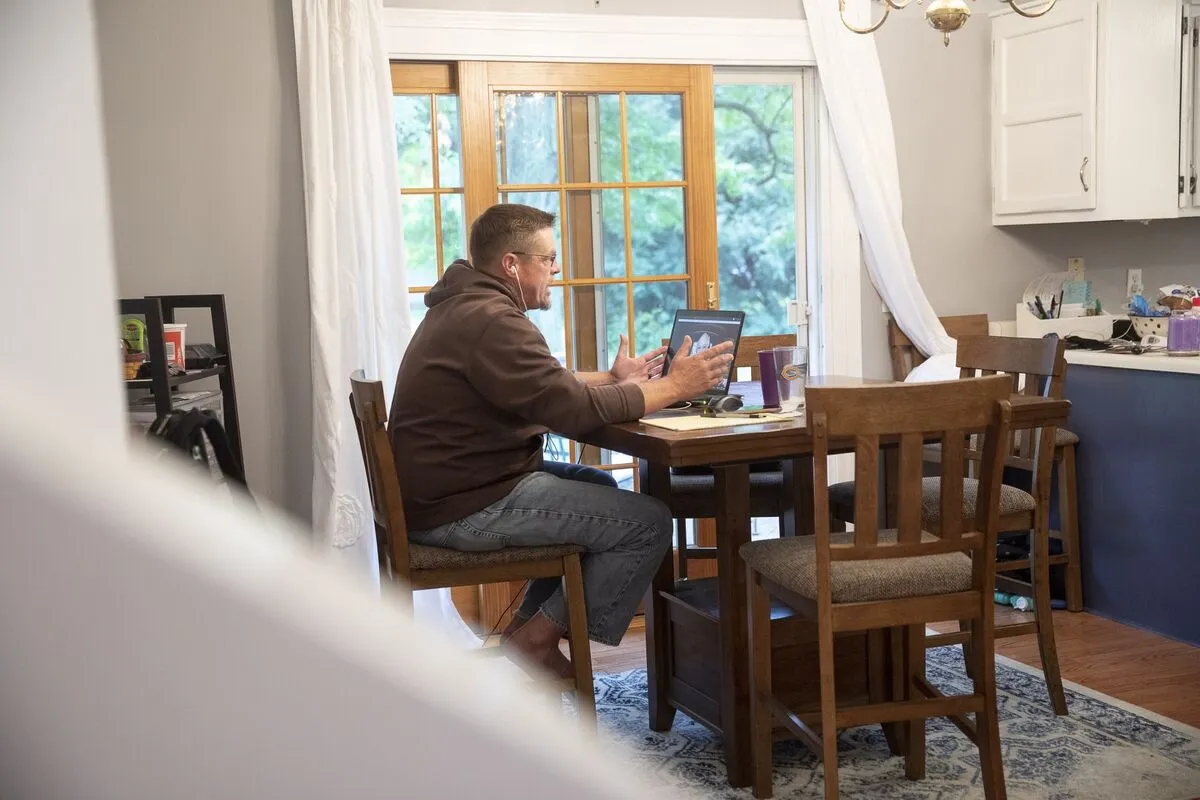Trending
UK Lifestyle Reset Work-from-Anywhere Becomes the New Norm

The modern workplace in the United Kingdom is undergoing a transformation unlike any in recent history. The once-temporary shift to remote work that began during the pandemic has evolved into a long-term lifestyle reset. For millions of professionals, the ability to work from anywhere, whether a home office, a countryside cottage, or a foreign destination—has become the new standard. As flexible work models solidify across industries, this change is reshaping not only the economy but also how people live, connect, and balance their personal and professional lives.
The Rise of Location Independence
Over the past two years, hybrid and remote work models have transitioned from corporate experiments to permanent fixtures. According to the UK Office for National Statistics, nearly 40 percent of the workforce now operates remotely at least part of the week, compared to less than 10 percent before 2020. Major employers across sectors such as finance, technology, and consulting have adopted flexible arrangements, recognizing that productivity and employee satisfaction often increase when individuals can choose where and how they work.
This flexibility has fundamentally altered traditional career structures. Commuting, once a daily routine, has become optional for many. Professionals are choosing to live farther from urban centers, drawn by lower housing costs and improved quality of life. Towns in regions like Cornwall, Devon, and the Lake District have seen a surge in population as digital workers relocate to scenic areas with reliable connectivity. Property markets in these regions have grown steadily, while London’s business districts are reinventing themselves with mixed-use developments catering to hybrid professionals.
The trend has also influenced international mobility. The UK’s growing number of “digital nomads” are taking advantage of remote work to spend extended periods abroad. European destinations such as Portugal, Spain, and Greece have introduced special visas for remote workers, attracting thousands of Britons seeking sunlit offices and cultural immersion without leaving their jobs behind. Conversely, the UK government has been exploring similar incentives to attract global professionals to live and work within its borders, fueling economic diversity and innovation.
Redefining Work-Life Balance and Company Culture
For employees, the work-from-anywhere model has redefined the meaning of work-life balance. Surveys conducted by Deloitte and PwC indicate that 75 percent of remote employees report higher job satisfaction and better mental wellbeing compared to pre-pandemic levels. Freed from rigid office schedules, workers are finding new ways to structure their days, integrating family time, exercise, and leisure into routines that once revolved around commutes and desk hours.
However, the shift is not without its challenges. Some employees report feelings of isolation and blurred boundaries between work and home life. In response, companies are focusing on digital wellbeing initiatives and flexible schedules that prioritize rest and collaboration over constant connectivity. Tech-driven communication tools, ranging from video conferencing platforms to virtual office spaces, have become essential for maintaining team cohesion.
Corporate culture has evolved to meet these changes. Managers are rethinking performance metrics, moving away from hours logged toward results achieved. Regular virtual check-ins, mentorship programs, and digital social events are replacing traditional office interactions. Many organizations are adopting hybrid models that blend remote work with occasional in-person meetings, striking a balance between flexibility and collaboration.
Employers are also leveraging flexible work policies as a powerful recruitment and retention tool. Competitive candidates increasingly expect remote options as a standard benefit. Companies that fail to adapt risk losing talent to more progressive rivals. The rise of flexible work has created a labor market where professionals prioritize autonomy, purpose, and wellbeing over rigid hierarchies and physical office spaces.
Economic and Social Shifts Across the UK
The rise of remote work has generated ripple effects throughout the UK economy. Urban centers like London, Manchester, and Birmingham are transforming their infrastructure to accommodate a new generation of mobile professionals. Co-working spaces, once primarily used by startups, are now flourishing as hubs for freelancers, hybrid teams, and corporate satellite offices.
Local economies in rural and coastal regions are also benefiting from the influx of remote professionals. The growth of “Zoom towns” has revitalized local businesses, from cafes and co-working hubs to wellness centers and cultural venues. This redistribution of economic activity is helping balance growth between metropolitan and regional areas.
Technology continues to play a central role in sustaining this transformation. Advances in high-speed broadband, 5G connectivity, and cloud computing have made remote collaboration seamless. The government’s ongoing investment in digital infrastructure is expanding access to reliable internet in previously underserved areas, ensuring that more communities can participate in the flexible work revolution.
Socially, this shift is fostering new forms of community. Professional networks are becoming decentralized, enabling collaboration across borders and industries. People are no longer defined by where they work but by the value they create. This flexibility is also empowering underrepresented groups, including parents, caregivers, and individuals with disabilities, by removing barriers to traditional employment and promoting inclusivity.
Conclusion
The UK’s embrace of the work-from-anywhere model represents more than a change in employment, it is a redefinition of modern living. As flexibility becomes a cornerstone of the post-pandemic economy, the boundaries between work and lifestyle are blending into a more fluid, human-centered structure.
For businesses, this shift offers opportunities to attract global talent and build adaptive, resilient teams. For individuals, it represents freedom, empowerment, and the chance to design a life that aligns with personal priorities. The long-term challenge will be maintaining connection and culture in a distributed workforce, but if managed thoughtfully, this transformation could mark the beginning of a more balanced and sustainable era for both workers and employers.
The UK’s lifestyle reset is well underway, and it is reshaping not only how people work—but how they live, thrive, and connect in an increasingly digital world.










